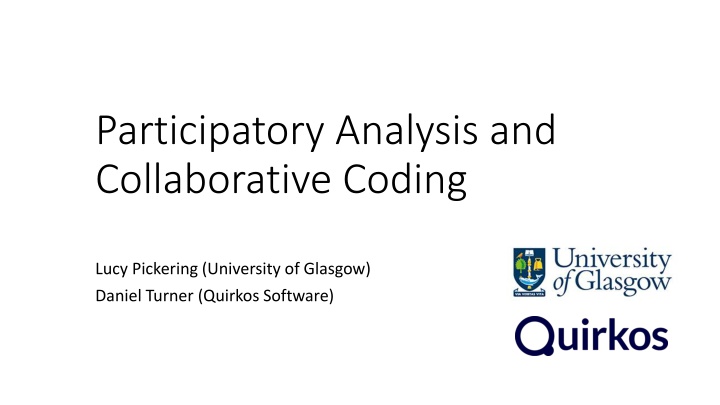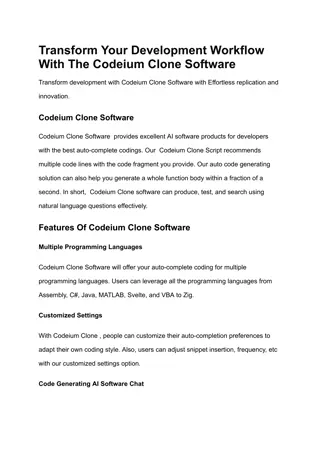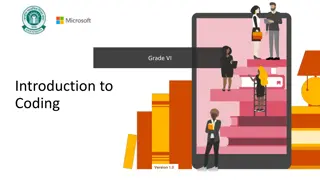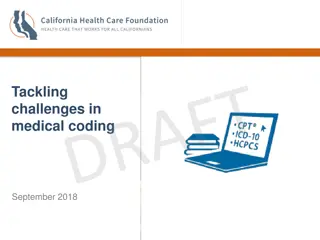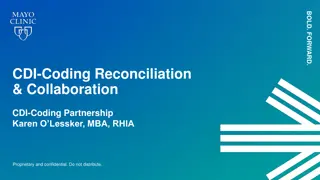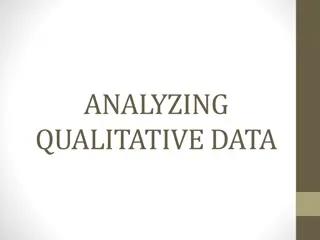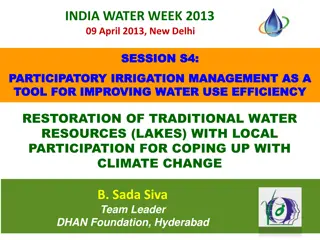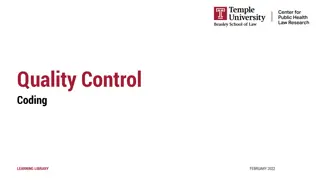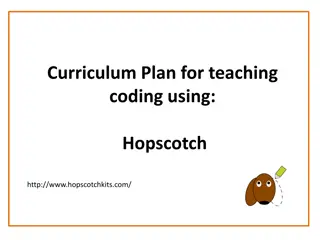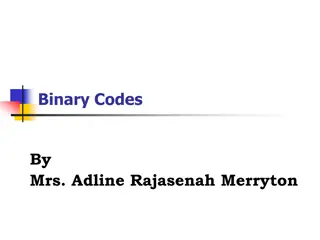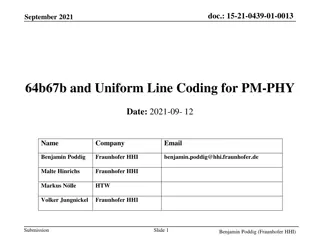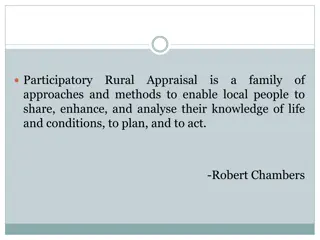Collaborative Analysis and Participatory Coding
The benefits, challenges, and methods of participatory analysis and collaborative coding in research, highlighting the importance of ethical values, quality, and personal development for researchers.
Download Presentation

Please find below an Image/Link to download the presentation.
The content on the website is provided AS IS for your information and personal use only. It may not be sold, licensed, or shared on other websites without obtaining consent from the author.If you encounter any issues during the download, it is possible that the publisher has removed the file from their server.
You are allowed to download the files provided on this website for personal or commercial use, subject to the condition that they are used lawfully. All files are the property of their respective owners.
The content on the website is provided AS IS for your information and personal use only. It may not be sold, licensed, or shared on other websites without obtaining consent from the author.
E N D
Presentation Transcript
Participatory Analysis and Collaborative Coding Lucy Pickering (University of Glasgow) Daniel Turner (Quirkos Software)
Who we are Dr Daniel Turner Founder and Director of Quirkos Dr Lucy Pickering Senior Lecturer in Medical Anthropology The University of Glasgow
What is analysis? Interpretation and sense checking Answering research question Coding data Interpreting that data Writing up findings Linking back to theory
Why (not) (not) participatory analysis/coding? Not commonly done It s the academic s job Not considered to add analytic value Responsibility and credit Academic as glorified administrator ? Are academics ready to give up control?! Co-authorship (politics of the REF / RCUK)
Why do participatory analysis?! Ethical values Quality Dissemination and knowledge exchange Personal development as a researcher
General challenges of doing participatory analysis Roles and expectations Hierarchies and relationships Communication Technology Learning software at the same time as coding Learning to do analysis in public Investment / buy-in
Cultural differences Geographical cultures Class cultures Gender norms Age / status
How to do it Individually Comparatively Collaboratively
Ways of coding Researcher codes participants comment/challenge Participants code researcher challenges/comments Group challenge all do it together?
Ways of doing participatory coding Blank sheet of paper Framework creation Emergent coding Grouping exercise Category prompts
Quotes from participants I started adding in categories, and then thinking, ooh, if I d added that in earlier I could actually have tied it up to such-and-such comment I thought that bit revealed a lot about her political beliefs, and I could feel my emotions entering into my judgement Suspicion, oh yeah, that s negative trust. Love of Scotland, oh! I put anti-English feelings which is the opposite! Ours are like inverse pictures of each other s!
Ways of collaborative interpreting interpreting What does it mean? / What did you discover? Researcher does the interpretation participants comment/challenge Participants do the interpretation researcher challenges/comments Group challenge all do it together?
After Coding Using for sense-checking? (how will you manage conflicts?) Is it representing/building a narrative? How many interpretations? What are you doing this for?
Writing up How do you bring it all together? How write up multiple interpretations of the same data? How to write sincere and coherent outputs? Different outputs for different audiences / authors
Tools Physically meeting (or Skype / Zoom)? Paper, highlighters, post it notes (tea and coffee!) What training is needed? Coding software?
What is Quirkos? Simple software tool for qualitative analysis (CAQDAS) Originally designed for participatory analysis Visual, quick to teach Grown sideways!
Blog articles & References Participatory data analysis: a step too far? Nind (2011) A Participatory Group Process to Analyze Qualitative Data Jackson (2008) https://www.quirkos.com/blog/tag/participatory daniel@quirkos.com lucy.pickering@glasgow.ac.uk
